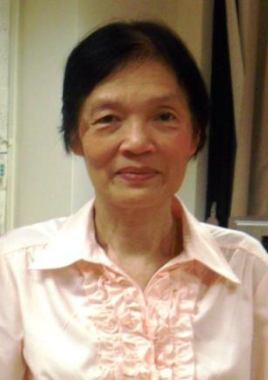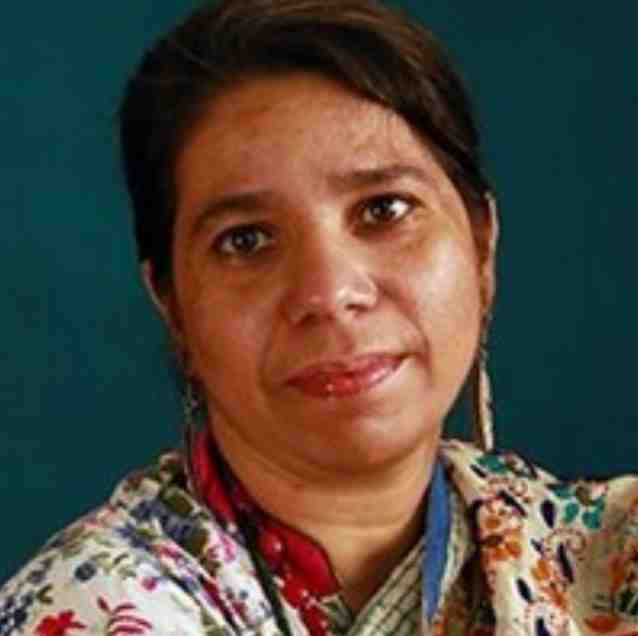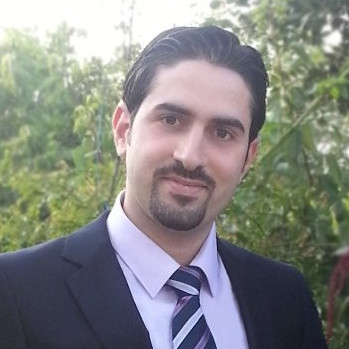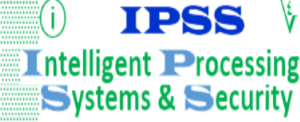The International Conference on Modern Artificial Intelligence and Data Science Systems (MAIDSS24)
CALL FOR PAPERS
In recent years, everyone is talking about Artificial Intelligence and Data Science and their obvious involvements in almost every field. Nowadays more than ever, we think it is the right time to approach these disciplines to better contribute to their orientation in the service of humanity. Our goal is to lead Artificial Intelligence and Data Science to excellence, especially in the MENA region as well as in Africa where, to our knowledge, there is no specialized conference dealing with such topics.
The International Conference on Modern Artificial Intelligence and Data Science Systems (MAIDSS) focuses on Artificial Intelligence and Data Science (AI&DS), their applications and how AI&DS fields can support societal challenges such as health and well-being, food and nutrition, agriculture, clean energy, transportation and risk management, for critical issues such as climate change, environmental and ecological protection, societal safety, etc. At the same time, the socio-economic context has also favored the emergence of frauds and other cyber-criminal activities. AI coupled to DS can be used to safeguard and protect users from these kinds of threats. AI&DS are potentially offering solutions to many practical issues of everyday life and if well exploited can positively revolutionize the life of the people.
MAIDSS aims to put in place sustainable mechanisms to strengthen and promote the cooperation between academics and professionals. It is also a key tool for strengthening industrial cooperation in AI R&D and bridging the gap between research and the market.
This Conference is a privileged place to exchange ideas, debates and networking between academics and entrepreneurs around the key issues of research, development and innovation in the various fields of Artificial Intelligence, Data Science and their Applications.
This session is therefore intended for start-ups, Designers, Developers, Decision-Makers, Consultants, and of course Master/PhD Students, Researchers and Academics.
Conference Tracks (but not limited to)
| Artificial Intelligence (AI) | AI in Technology Trends | AI in Business | AI in Communication | AI in Societal Challenges |
| Cognitive Computing | Big Data | Business Intelligence | Cloud, Fog & Soft Computing | Biometrics & Cyber Security |
| Constraint Programming | Blockchain | Business Modelling | M2M Systems and Services | Clean Energy & Environment |
| Deep Learning | Computational Intelligence | Business Process Management | Mobile Adhoc Networks | Climate Change |
| Expert Systems | Computer Vision | Data Analysis | Mobile Edge Computing | Critical Issues |
| Logic & Fuzzy Logic | Data Mining & Web Mining | e-Learning Tools | Multi Edge Computing | Food and Nutrition |
| Gamification | Data Science | Enterprise Architecture (EA) | Network Evolutions (4G/5G) | Health and Well-Being |
| Information Retrieval | Evolutionary Methods | Enterprise Engineering | Network Function Virtualization | Information Security & Privacy |
| Machine Learning | Human Computer Interaction | Enterprise Knowledge Engineering | Networking & Mobile Apps | Medical Diagnosis |
| Multi-Agent Systems | Information Systems | Enterprise Knowledge Management | Next Generation Networks | Privacy in Intelligence |
| Natural Language Processing | IoT & Internet of Everything | Enterprise Resource Planning | Open Spectrum Solutions | Risk Management |
| Neural Networks | Quantum Computing | Evolution of EA | Satellite Communication Systems | Smart Cities |
| Semantic Web | Robotics | Service Oriented Architecture | SDN & SRN & CRN | Smart Services and Platforms |
| Sentiment Analysis | Smart Grid | Virtual Organisations | Vehicular Networks | Social Computing |
| System of Systems | Software Engineering | Web Analytics | Wireless & Mobile Communication | Societal and Private Safety |
| Virtual & Augmented Reality | Video Analysis | Web Services | Wireless Sensor Networks | Transportation |
| Etc. | Etc. | Etc. | Etc. | Etc. |
IMPORTANT DATES
| Paper Submission Due | 18 November 2023 |
| Acceptance Notification | 30 November 2023 |
| Author Registration | 5 December 2023 |
| Camera Ready Submission | 7 December 2023 |
| Conference Dates | 13–14 February 2024 |

INVITED TALKS
 Pr. Lorna Uden is Emeritus Professor of IT systems in the school of Computing, Faculty of Computing and Digital Technologies at Staffordshire University.
Pr. Lorna Uden is Emeritus Professor of IT systems in the school of Computing, Faculty of Computing and Digital Technologies at Staffordshire University.
She has published widely in conferences, journals, chapters of books and workshops. Her research interests include Learning Technology, Web Engineering and Technology, Human Computer Interaction, Activity Theory, Big Data, Innovation, E-business, Knowledge management, Health Care, Service Innovation, Intelligent Transport Systems, Service Science, Internet of Things (IOT), Artificial Intelligence, Smart Cities. Neuroscience and Problem-Based Learning (PBL). She co-authored the book, ‘Technology and Problem – Based Learning’, published by IGI publishers. Professor Uden travels round the world to give workshops in Problem Based Learning and Research seminars. She also co-authored a book, the Future of Intelligent Transport System published by Elsevier. Professor Uden is program committee member for many international conferences and workshops. She is on the editorial board of several international journals. She is founder and editor in chief of the International Journal of Web Engineering and Technology (IJWET) and the International Journal of Learning Technology (IJLT), published by Inderscience, UK.
Professor Uden is also visiting professor to many different countries. She has been keynote speaker at many international conferences. On the international front, she collaborates widely with colleagues worldwide. She is the founder of the KMO and LTEC conferences. Professor Uden is also the conference chair of KMO2023 and LTEC 2023.
Talk 1: Artificial intelligence and Neuroscience
Professor emeritus Lorna Uden School of Computing Faculty of Computing and Digital Technologies Mellor Building Staffordshire University, College Road Stoke-on-Trent ST4 2DE
Email: L.uden@staffs.ac.uk
Abstract.
well as engaging in creative endeavours in writing novels and music. Despite this, it is still a long way from building artificial human intelligence. Current AIs are only designed to excel in their intended functions and cannot generate knowledge to new tasks and situations.
For AI to achieve artificial human intelligence requires us to study and understand the human brain. Neuroscience is the study of the anatomy and physiology of the human brain. It provides us interesting insights into how the brain works to develop better AI systems.
Conversely, better AI systems can help drive neuroscience forward and further unlock the secrets of the brain. Neuroscience and AI are closely related. The synergy of the two will benefit each other. Besides the benefits of neuroscience for AI research, neuroscience also has important implications for machine learning.
This talk discusses the implications of neuroscience for general artificial intelligence and the benefits of AI for neuroscience research.
 Dr. Rachid Alami is Senior Scientist at LAAS-CNRS. He received an engineer diploma in computer science in 1978 from ENSEEIHT, a Ph.D in Robotics in 1983 from Institut National Polytechnique and a Habilitation HDR in 1996 from Paul Sabatier University. He contributed and took responsibilities in several National, European and International research and/or collaborative projects (ESPRIT: MARTHA, PROMotion, IST FP6 projects: COGNIRON, URUS, PHRIENDS, and FP7 projects: CHRIS, SAPHARI, ARCAS, SPENCER, H2020: MuMMER, France: VAP-RISP for planetary rovers, several ANR projects).
Dr. Rachid Alami is Senior Scientist at LAAS-CNRS. He received an engineer diploma in computer science in 1978 from ENSEEIHT, a Ph.D in Robotics in 1983 from Institut National Polytechnique and a Habilitation HDR in 1996 from Paul Sabatier University. He contributed and took responsibilities in several National, European and International research and/or collaborative projects (ESPRIT: MARTHA, PROMotion, IST FP6 projects: COGNIRON, URUS, PHRIENDS, and FP7 projects: CHRIS, SAPHARI, ARCAS, SPENCER, H2020: MuMMER, France: VAP-RISP for planetary rovers, several ANR projects).
He is holding since 2019 the Academic Chair on Cognitive and Interactive Robotics at the Artificial and Natural Intelligence Toulouse Institute (ANITI). His main research contributions fall in the fields of Robot Decisional and Control Architectures, Task and motion planning, multi-robot cooperation, and human-robot interaction.
Talk 2: Decisional Issues for Cognitive and Interactive Robots
Prof. Rachid Alami, LAAS-CNRS, ANITI, France, https://homepages.laas.fr/rachid
Abstract. This talk will address some key decisional issues that are necessary for a cognitive and interactive robot, which shares space and tasks with humans. We adopt a constructive approach based on the identification and the effective implementation of individual and collaborative skills. The system is comprehensive since it aims at dealing with a complete set of abilities articulated so that the robot controller is effectively able to conduct in a flexible and fluent manner a human-robot joint action seen as a collaborative problem solving and task achievement. These abilities include geometric reasoning and situation assessment based essentially on perspective-taking and affordances, management and exploitation of each agent (human and robot) knowledge in a separate cognitive model, human-aware task planning and interleaved execution of shared plans. We will also discuss the key issues linked to the pertinence and the acceptability by the human of the robot behaviour, and how this influence qualitatively the robot decisional, planning, control and communication processes.
 Dr. Amita Kapoor is an experienced AI consultant and educator, with over 25 years of experience in the field of neural networks and artificial intelligence. She has worked as an Associate Professor at the University of Delhi and is presently member of the Board of Directors for Neuromatch Academy, a non-profit organization that aims to democratize deep learning education through online summer schools. As the founder of NePeur, Amita provides data analytics and AI consultancy services to businesses and has successfully helped several clients to leverage AI models in their business for increased efficiency and better business intelligence. She also teaches online classes on data science and AI at the University of Oxford, where she leads discussions and group activities to promote critical thinking and collaboration among students.
Dr. Amita Kapoor is an experienced AI consultant and educator, with over 25 years of experience in the field of neural networks and artificial intelligence. She has worked as an Associate Professor at the University of Delhi and is presently member of the Board of Directors for Neuromatch Academy, a non-profit organization that aims to democratize deep learning education through online summer schools. As the founder of NePeur, Amita provides data analytics and AI consultancy services to businesses and has successfully helped several clients to leverage AI models in their business for increased efficiency and better business intelligence. She also teaches online classes on data science and AI at the University of Oxford, where she leads discussions and group activities to promote critical thinking and collaboration among students.
Talk 3: Reinforcement Learning: Overview and challenges
Dr. Amita Kapoor, Artificial Intelligence and Data Analytics Expert, Educator, Author, Expert in Remote Team Management,
https://www.linkedin.com/in/amitakapoor/
Abstract. Reinforcement learning is a rapidly growing field within the realm of artificial intelligence, which involves the use of algorithms to train agents to learn from their interactions with an environment. This talk will provide an overview of the key concepts and challenges of reinforcement learning.
The talk will start with an introduction to the fundamentals of reinforcement learning, including the concepts of state, action, reward, and value functions. It will then delve into the different types of reinforcement learning algorithms, including value-based, policy-based, and model-based methods.
Finally, the talk will explore real-world use cases of reinforcement learning, demonstrating how this technology can be used to solve complex problems in areas such as robotics, gaming, and autonomous driving.
 Dr. Yazan Mualla acquired a BSc in information technology engineering in 2009. From 2010 to 2014, he was a field engineer with Schlumberger international company. He obtained his MSc in cyber–physical social systems from the High National School of Mines of Saint-Etienne, France. He received the Ph.D. degree in computer science from the Franche-Comté University, France. Currently, he is an associate professor at the Belfort-Montbéliard University of Technology, France. He is the head of the specialty program: Software deployment methods and tools. Additionally, he is a member of the board of the “Connaissance and Intelligence Artificielle Distribués” (CIAD) research laboratory. His research interests include Multi-Agent Systems, eXplainable Artificial Intelligence (XAI), Human-Computer Interaction, and Intelligent Transport Systems. He participated in several national, European, and international projects, and he has authored more than 40 research articles in international journals, conferences, and workshops.
Dr. Yazan Mualla acquired a BSc in information technology engineering in 2009. From 2010 to 2014, he was a field engineer with Schlumberger international company. He obtained his MSc in cyber–physical social systems from the High National School of Mines of Saint-Etienne, France. He received the Ph.D. degree in computer science from the Franche-Comté University, France. Currently, he is an associate professor at the Belfort-Montbéliard University of Technology, France. He is the head of the specialty program: Software deployment methods and tools. Additionally, he is a member of the board of the “Connaissance and Intelligence Artificielle Distribués” (CIAD) research laboratory. His research interests include Multi-Agent Systems, eXplainable Artificial Intelligence (XAI), Human-Computer Interaction, and Intelligent Transport Systems. He participated in several national, European, and international projects, and he has authored more than 40 research articles in international journals, conferences, and workshops.
Talk 4: Introduction to Explainable Artificial Intelligence: Goal-driven Approach
Yazan Mualla (UTBM, CIAD UMR 7533, F-90010 Belfort, France, yazan.mualla@utbm.fr)
Abstract
Recently, eXplainable AI (XAI) gained momentum both in academia and industry to explain the results of black-box machine learning algorithms. A landscape of XAI branches along with strategies for developing explainable models are provided.
Latest empirical studies have confirmed that explaining a system’s behavior to human users fosters the latter’s acceptance of the system. However, providing overwhelming or unnecessary information may also confuse the users and cause failure. For these reasons, parsimony has been outlined as one of the key features of XAI with parsimonious explanation defined as the simplest explanation that describes the situation adequately. Our work proposes HAExA, a human-agent explainability architecture to formulate parsimonious explanations for remote robots.
SUBMISSION GUIDELINES
Authors are kindly invited to submit research papers/posters/demo, which are not submitted or published or under consideration anywhere in other conference or journal, either following the link https://easychair.org/conferences/?conf=maidss23 or email at maidss@maidss.org.
- Full Papers (10 ~ 12 pages), and short papers (5 ~ 6 pages), written in English, must follow the Springer downloadable template: https://www.springer.com/gp/authors-editors/book-authors-editors/your-publication-journey/manuscript-preparation.
- At least two TPC members will review each submission.
- The acceptance decision will take into consideration paper relevance, originality, novelty, technical depth, impact, quality, scientific-value added, etc.
Proceedings Publication and Indexing
The proceedings will be published under the SPRINGER Book Series “Studies in Computational Intelligence“, which is indexed in SCOPUS, DBLP, etc
We are really pleased to announce that the authors with good quality papers will be invited to submit an extended paper (over 20 pages) for review in IJWET Journal. These articles will be reviewed again by the journal committee. Accepted articles will be published in IJWET.
Conference venue
The conference will take place in Rabat, Morocco.
On-line presentation facilities will be available to authors who could not attend the conference.
COMMITTEES
General Chair
IDRISSI Abdellah
IPSS Team, Computer Science Department
Faculty of Sciences of Rabat, Mohammed V University in Rabat
Technical Program Committee
ABBAS-TURKI Jalil, UTBM, France
AHMED Mobyen Uddin, Mälardalen University, Sweden
AJAY Malik, SECO MIND, USA
ALAMI Rachid, LAAS, Toulouse University, France
BADARD Thierry, University of Laval, Canada
BADICA Costin, University of Craiova, Roumania
BEGUM Shahina, Mälardalen University, Sweden
BELDJEHEM Mokhtar, University of Ottawa, Canada
BELLATRECHE Ladjel, ENSMA Poitiers, France
BELOUADHA F. Z., Mohammed V University in Rabat
BEN ABDALLAH Hanene, University of Sfax, Tunisia
BEN OTHMAN Hajer, FCIT, University of Jeddah, KSA
BENABBOU Faouzia, Hassan II University in Casablanca
BENBLIDIA Nadjia, Blida University Algeria
BENHARKAT Nabila, INSA, Lyon, France
BENHASSINE Ahlem, FCIT, University of Jeddah, KSA
BENKHELIFA Elhadj, Staffordshire University, UK
BENLAMRI Rachid, Lakehead University, Canada
BENMAMOUN Mouad, Mohammed V University in Rabat
BENNANI Younès, Paris 13 University, France
BENTAYEB Fadila, Lyon 2 University, France
BOUAMAMA Sadok, FCIT, University of Jeddah, KSA
BOUCHBOUT Khoutir, USTHB University, Algeria
BOUFARES Faouzi, LIPN Paris, France
BOUGUILA Nizar, Concordia University, Canada
BOUKHALFA Kamel, USTHB, Algeria
BOUSSAID Omar, Lyon II University, France
BOUSTIA Narhimène, Saad Dahla University, Algeria
CABANES Guénael, Paris 13 University, France
CHABCHOUB Yousra, ISEP, France
CHAOUI Habiba, ENSA Kenitra, Morocco
CHAOUI Houda, ENSA Fes, USMBA
CHIKY Raja, ISEP, France
DHIVYAPRABHA Tt., Deemed University, India
DRIDI Mahjoub, UTBM, France
ECHOUKAIRI H., Mohammed V University in Rabat
EL AMRANI Najiba, USMBA Universiy, Fes, Morocco
EL GHMARY Mohamed, USMBA University in Fez
EL YAHYAOUI A., Mohammed V University in Rabat
ELKHATTABI Noussaima, Mohammed V University in Rabat
EZ-ZAHOUT A., Mohammed V University in Rabat
FAVRE Cécile, Lyon 2 University, France
FEKI Jamel, Sfax University, Tunisia
FERRAG Mohamed Amine, LRS, Guelma, Algeria
FULVIO Mastrogiovanni, University of Genova, Italy
FUSHI David Luigi, Bridging Consulting, UK
GAHI Youssef, ENSA Kenitra, Morocco
GALLAND Stéphane, UTBM, France
GARGOURI Faiez, Sfax University, Tunisia
GAUD Nicolas, UTBM, France
GHOZZI Faiza, Sfax University, Tunisia
GIONIS Aristides, Aalto University, Finland
GRAFFI Kálmán, Düsseldorf University, Germany
GROZAVU Nistor, Paris 13 University, France
HAMMAMI Moez, HIM, Tunisia
HANIFI Majdoulayne, IUR, Rabat, Morocco
HANY Ammar, West Virginia University, USA
HARMELING Stefan, Düsseldorf University, Germany
HAYAR Aawatif, Hassan II University, Casablanca
HIOUAL Ouassila, Khenchela University, Algeria
HLUCHY Ladislav, Institute of Informatics, Slovakia
HSAIRI Lobna, FCIT, University of Jeddah, KSA
IDOUDI Hanene, ENSI, University of Manouba, Tunisia
IDRISSI Abdellah, Mohammed V University in Rabat
IMRAN Ahmad, University of Windsor, Canada
ISHIDA Toru, Kyoto University, Japan
JAFAR Alzubi, Al-Balqa Applied University, Jordan
JARARWEH Yaser, JUST, Jordan
JARRAR Mustapha, Birzeit University, Palestine
KABACHI Nadia, Lyon1 University, France
KAPOOR Amita, University of Delhi, India
KOUKAM Abderrafiaa, UTBM, France
KRIAA Lobna, ENSI, University of Manouba, Tunisia
LANG Jérôme, Paris Dauphine University, France
LANGAR Rami, LIGM, UPEM, France
LI Kuan-Ching, Providence University, Taiwan
LIOTTA Antonio, Eindhoven University, Netherlands
LOMBARD Alexandre, UTBM, France
LORENZ Pascal, University of Haute Alsace, France
MAHDAOUI Latifa, USTHB University, Algeria
MARTHON Philippe, IRIT, Toulouse University, France
MATSUBARA Shigeo, Kyoto University, Japan
MEZIANE Abdelkrim, CERIST, Algeria
MOURAKAMI Yohei, Kyoto University, Japan
MOUSSA Rim, Carthage University, Tunisia
MUALLA Yazan, UTBM, France
NABLI Ahlem, Sfax University, Tunisia
NAÏT BAHLOUL Safia, Oran University, Algeria
NEMICHE Mohamed, FS Agadir, Morocco
OMARY Fouzia, FSR, Mohammed V University in Rabat
OMRI Kaouther, FCIT, University of Jeddah, KSA
OUACHA Ali, Mohammed V Univerity in Rabat
OUHBI Sofia, IUR, Rabat, Morocco
OULAD SAYAD Younes, Ibn Zohr University
PASQUIER Philippe, Simon Fraser University, Canada
PEREZ Gregorio Martinez, University of Murcia, Spain
PIURI Vincenzo, University of Milan, Italy
PRECUP Radu-Emil, University of Timisoara, Romania
PUNTES Daniel Franco, UAB, Spain
RAHIM Rana, AUB, Lebanon
RAVAT Frank, Toulouse University, France
ROBBANA Riadh, INSAT, Tunisia
RODRIGUEZ Sebastian, RMIT, Australia
ROSHAYU Mohamad, University of Jeddah, KSA
ROTHMAN Denis, AI Expert, Paris, France
SAHAMI Mehran, Stanford University, UK
SALMELIN Riitta, Aalto University, Finland
SARKKA Simo, Aalto University, Finland
SAXENA Geetika Jain, University of Delhi, India
SCHIEX Thomas, INRA, Toulouse, France
SHEIKH Iqbal Ahamed, Marquette University, USA
SLAIMI Fatma, University of Marseille, France
SNOUSSI Samia, FCIT, University of Jeddah, KSA
SONI Neha, Maharishi Markandeshwar University, India
SOREL Reisman, California State University, USA
SUBASHINI P., Deemed University, India
SUYKENS Johan, KU Leuven, Belgium
TAKAYUKI Ito, Nagoya University, Japan
TESTE Olivier, Toulouse University, France
TOGELIUS Julian, New York University, USA
TRAGHA Abderrahim, Hassan II University, Morocco
TU BAO Ho, JAIST, Japan
UDEN Lorna, Staffordshire University, UK
VELIN Tonny, AICRUMIT, Spain
WALSH Toby, UNSW Sydney, Australia
Wang Frank, University of Kent, UK
ZAHIR Jihad, UCAM, Marrakech, Morocco
ZARAKET Fadi, AUB, Lebanon
ZGHAL Sami, Jendouba University, Tunisia
ZURFLUH Gilles, Toulouse University, France
Organizing committee
TBA
REGISTRATION
Each accepted regular paper or short paper MUST be uploaded by 30 November 2023 The format for camera-ready paper is available on the conference website (https://maidss.org/maidss24).
A regular paper is limited to 12 pages, and a maximum of 2 extra pages.
A short paper is limited to 6 pages, and a maximum of 1 extra page.
If you wish to attend the conference, please fill out the following form: The form
PROGRAM
Location
Mohammed V University in Rabat Faculty of Science,
4 Avenue Ibn Battouta, Rabat, Morocco
Contact us
Email: maidss@maidss.org
SPONSORS





